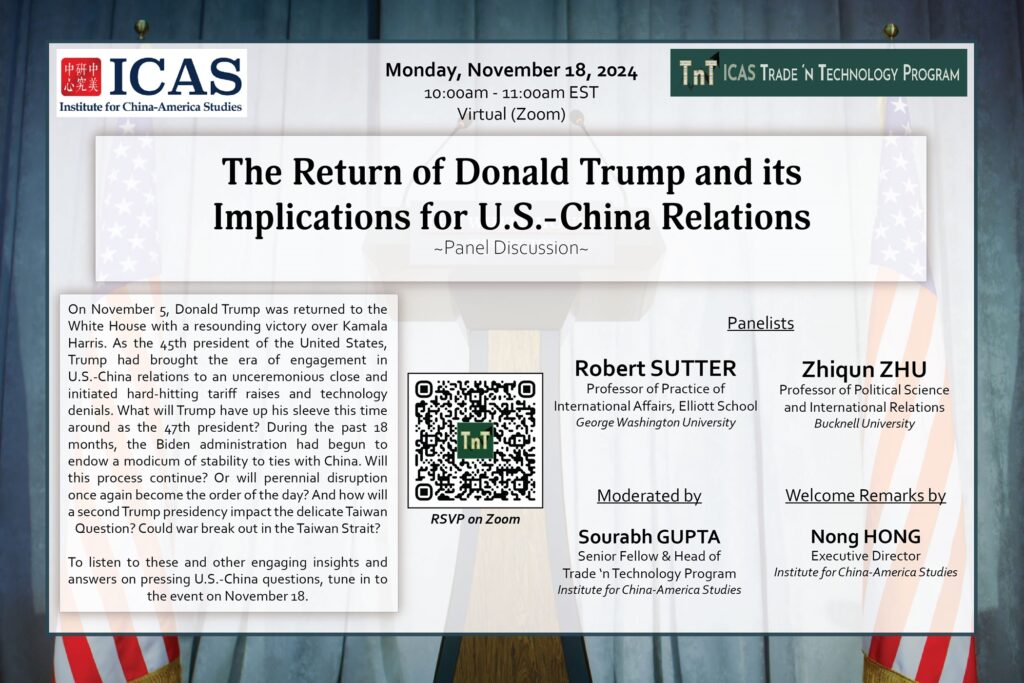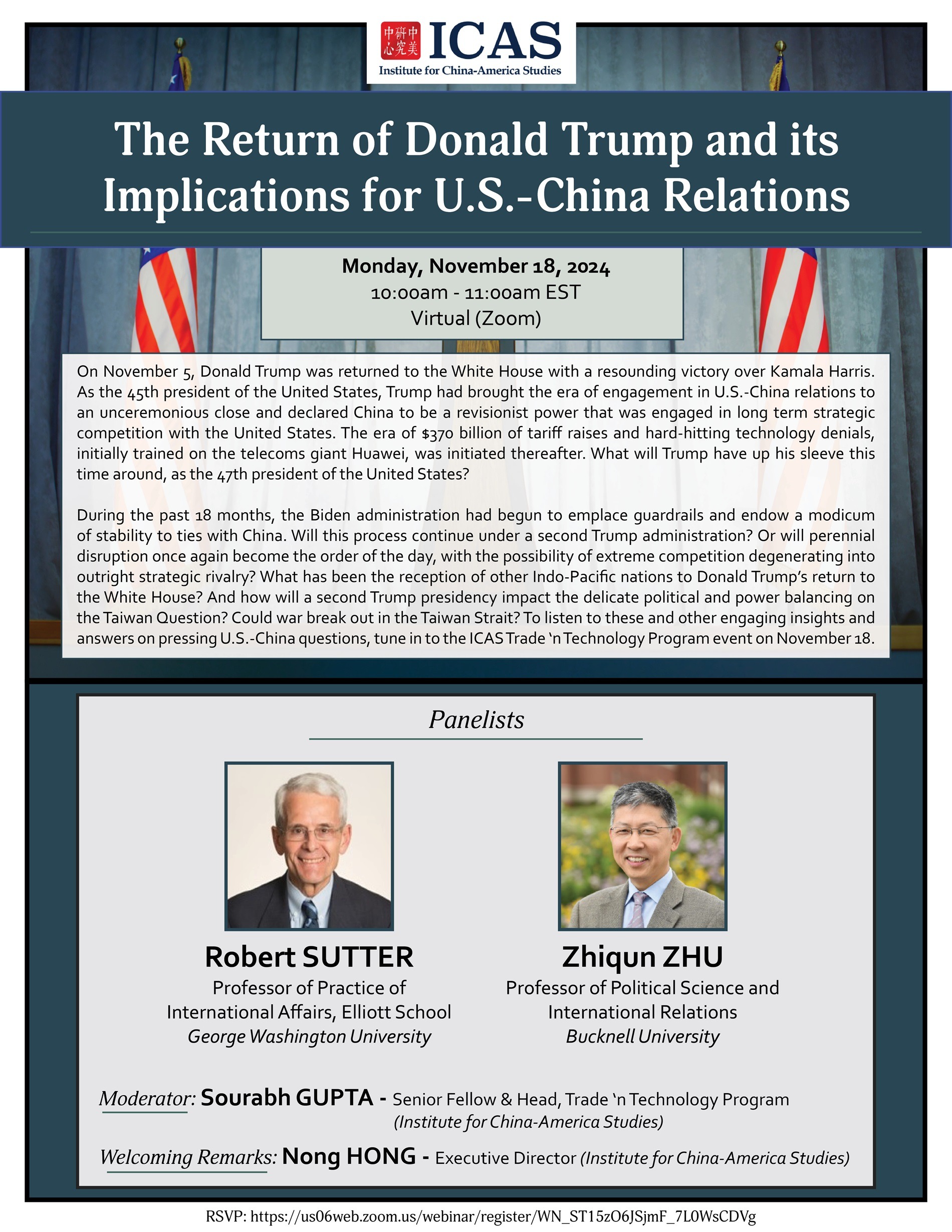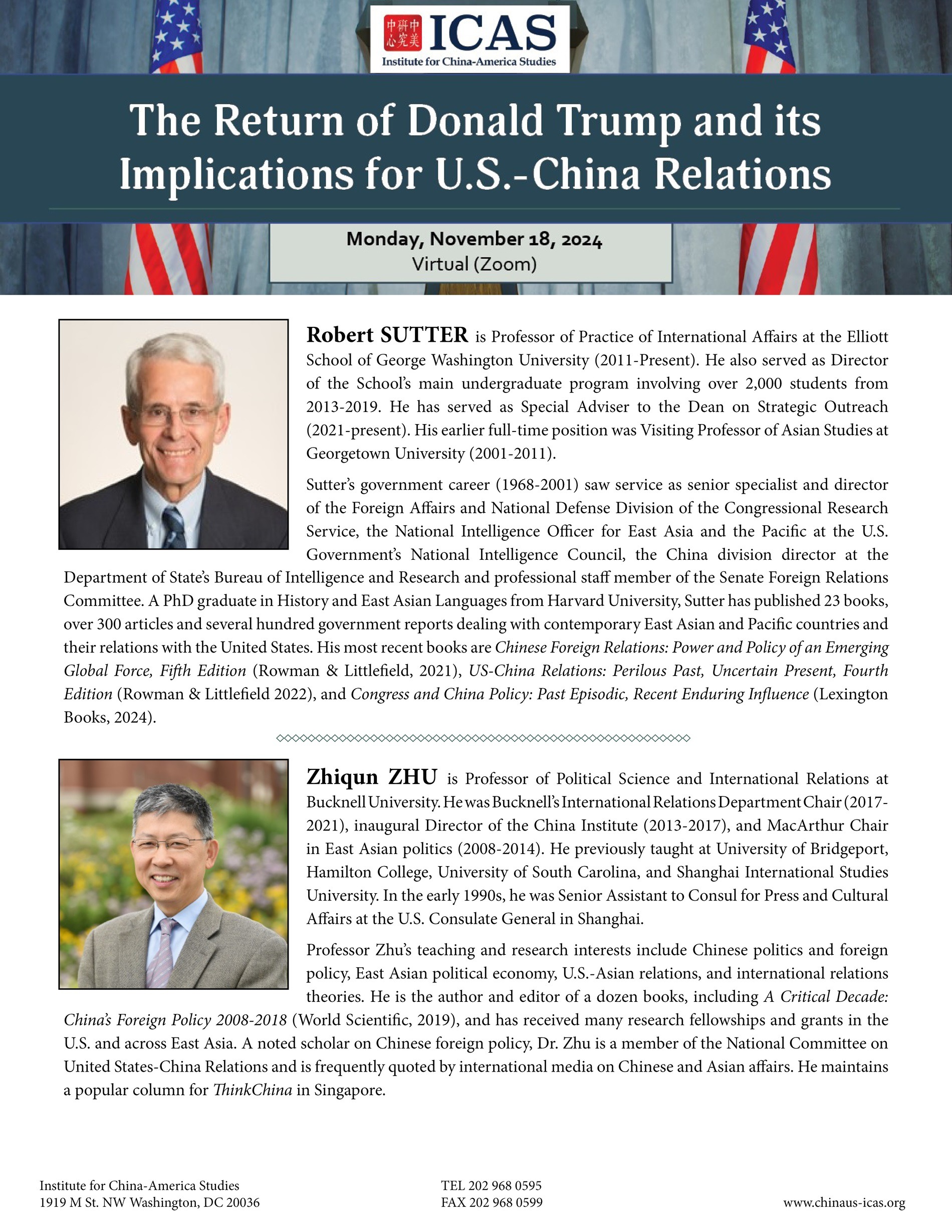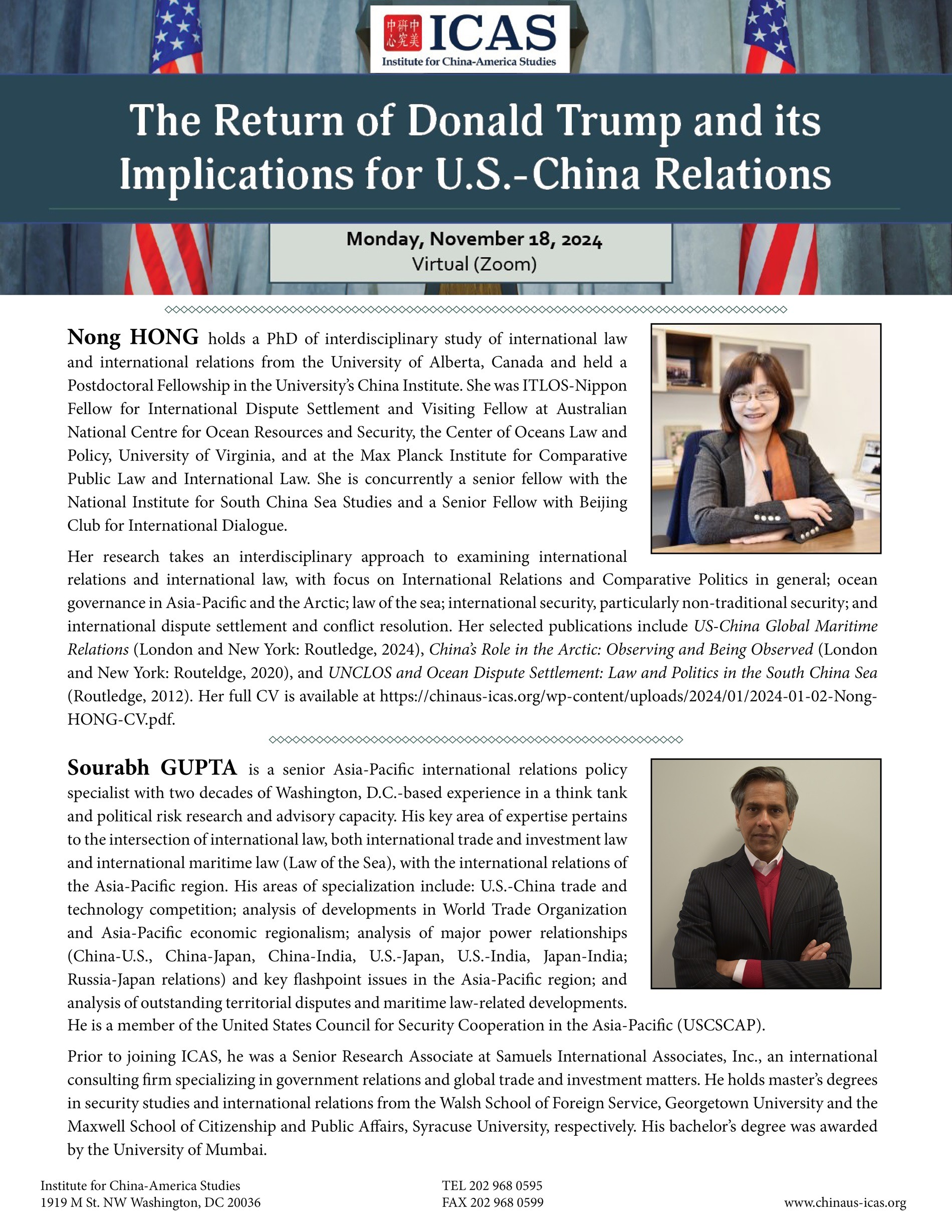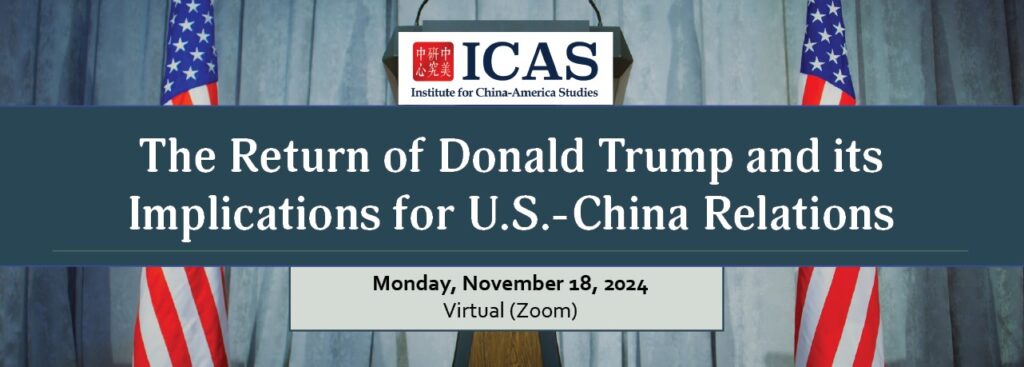
Event Summary
On November 18, 2024, the Institute for China-America Studies (ICAS) hosted a virtual public event to discuss the prospects for U.S.-China relations during the impending second Trump administration. The event was titled “The Return of Donald Trump and its Implications for U.S.-China Relations” and featured two panelists: Dr. Robert Sutter, Professor of Practice of International Affairs at the Elliott School, George Washington University and Dr. Zhiqun Zhu, Professor of Political Science and International Relations at Bucknell University. The panelists were introduced by Dr. Hong Nong, Executive Director of ICAS, and the event was moderated by Mr. Sourabh Gupta, Head of ICAS’ Trade n’ Technology (TnT) program.
The panelists provided a rundown of views on both sides of the Pacific, including third country views in East and Southeast Asia, on Donald Trump’s return to the White House. For all parties involved, a period of disruption looms, and much time and effort will need to be committed to managing the many small and not-so-small geopolitical and economic upheavals that is the likely upshot of Trump’s return to the Oval Office. For America’s smaller alliance partners in the Indo-Pacific region in particular, the angst is that much greater given their relative security dependence on the United States. But for other regional states too, the surety of the United States’ stabilizing security presence in the region can no longer be taken for granted. This having been said, the United States’ intense competition with China will continue to remain a cardinal feature of the Trump administration’s Indo-Pacific policy. For one, there is a broad bipartisan consensus for a firm and robust China policy among Beltway establishment players. Second, even those of a MAGA persuasion inclined to disengage from Ukraine have voiced full-throated commitment to challenging China at every step of the way. And third, while the incoming president himself might be made of a more transactionalist cast and open to bargains—edifying and unedifying—with his “very special [friend]” President Xi Jinping, his national security cabinet appointees are one in their hardline stances on China. Broad strategic policy approaches on China will therefore continue.
The panelists were of the same view that a big tariff stick will be waved at China. This will, of course, escalate the already-bitter politics and polemics in their trading relationship and could roil equity and currency markets. The extreme competition in advanced technologies will remain just as fevered, with export controls deployed often and punitively. That said, Chinese companies have learnt to navigate their pathways around the tariffs and, up to a point, on export controls. And these strategic trade controls have even provided a fillip to China’s buildout of a more self-sufficient technology ecosystem. Besides, Beijing has also built-out a toolkit for targeted retaliation and is gradually shedding its reticence to utilize these instruments. As such, Chinese leaders today have greater confidence in managing the negative implications of a second Trump presidency (although they would have preferred to deal with a Harris presidency). But given the consequential nature of the U.S.-China relationship, they will also strain to preserve stability in a larger relationship which, in their view, is ‘not completely broken’ as well as remain open to striking mercantilist bargains with dealmaker Donald Trump, should he be so inclined. The panelists also touched on a number of other topics that impinge on U.S.-China ties, ranging from Korean Peninsula-related alliance relations and the outlook for tensions in the Taiwan Strait to the foreseeable challenge of stably managing day-to-day ties at the mid-officials level, given the incoming Trump administration’s avowed desire to take “a chainsaw to U.S. [federal] bureaucracy.”

